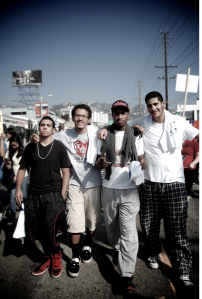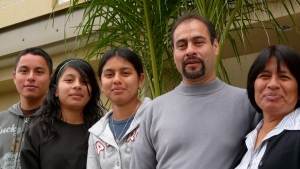Byline: Kafi D. Blumenfield
In coming decades, an increasingly diverse Los Angeles will need its young men – all its young men, not just the most privileged – to take their places in society and work to build the economy, educate the next generations, preserve the environment and improve the lives of all Angelenos. But today low income and young men of color have the lowest life expectancy rates, highest unemployment rates, fewest high school and college graduates and most murder victims of any demographic group in Los Angeles.
Liberty Hill believes that there is a new reality ready to be built, a reality that recognizes the potential of this large percentage of our future adult population.
 This week, I will begin to talk to friends, donors, foundation executives and other allies at the Uplifting Change Summit about Brothers, Sons, Selves, our case for Liberty Hill’s stepped-up investment in improving the lives of L.A.’s low income boys and young men of color. We will be posting our new ebooklet Brothers, Sons, Selves in the next few days. Look for it!
This week, I will begin to talk to friends, donors, foundation executives and other allies at the Uplifting Change Summit about Brothers, Sons, Selves, our case for Liberty Hill’s stepped-up investment in improving the lives of L.A.’s low income boys and young men of color. We will be posting our new ebooklet Brothers, Sons, Selves in the next few days. Look for it!
As part of this stepped-up investment, Liberty Hill is managing an emerging campaign, co-created in partnership with The California Endowment, of L.A. community organizations. This statewide effort will build local strength and aggregate it for statewide impact. Affiliated campaigns are being led in Oakland and Fresno.
Our Steering Committee so far includes some of L.A.’s strongest community organizations working in communities of color including Brotherhood Crusade, Californians for Justice, Community Coalition, East L.A. YMCA, Gay Straight Alliance Network, InnerCity Struggle, Khmer Girls and Guys in Action, Labor/Community Strategy Center, as well as our smart strategic partners PolicyLink, Movement Strategy Center, Jemmott Rollins Group, Ideate California. Additional organizations may be added in the future.
Our first public campaign event will be a Field Hearing of the California State Assembly Select Committee on the Status of Boys and Men of Color slated for March 2nd from 3-6 pm at the Expo Center across from Manuel Arts High School. If you would like to attend, please email Anthony Foster on our staff. I look forward to being able to report-out our progress over the coming months!
Photo by Christian Santiego, age 18, courtesy of L.A. Youth, the newspaper by and about teens.





